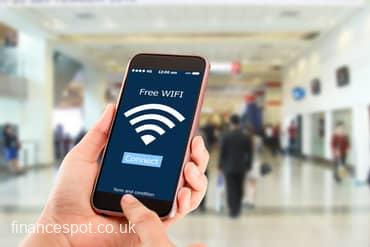Britons’ shopping habits have undergone a stark change during the COVID-19 lockdown. Now, one-in-two Brits state that their online shopping activity has significantly increased. According to cybersecurity experts McAfee, around 80% of us make weekly online purchases, with just over 10% of people stating that they shop online every day.
Of course, there is no more significant incentive to shop online than the incredible bargains offered during Black Friday sales. There is no other option for shopping for people in lockdown or self-isolation, so Black Friday presents even more of a draw to secure those all-important Christmas gifts.
However, an increase in online activity around this time leads to heightened activity of a more unwelcome nature. Cybercrimes and online scams are rife around Black Friday, as hackers and cybercriminals attempt to cash in on shoppers being distracted by the promise of fantastic bargains. Three-in-four Brits have concerns about falling victim to some sort of scam or online crime. If you are one of them, here are some tips to ensure that your Black Friday shopping, or any other day’s online activities, are safe and scam-free.
If Something Seems Too Good To Be True, It Probably Is
We’ve all received emails or text messages promising offers that seem too remarkable to be true. The vast majority of the time, such offers are scams, sent as a phishing tactic to entice you to click a link, enter details into a contact form, or some other type of engagement. Of course, taking any of these actions is generally the first step towards being scammed.
This tactic is used by hackers and cybercriminals to access your computer or device or upload some type of malicious programme. Common indicators that a message is fake and potentially malicious are deliberately misspelled web addresses, spelling errors in the text, and poor grammar. If you notice any of these signs, you should assume that the message is a hoax and do not open any attachment or click on any link, image, banner, or pop-up. If you want to check that it has come from a valid source, type in the web address yourself, and verify it directly.

Research the Company
If you receive something from a seller that you do not recognise, do some basic research on them. You can see other people’s feedback and customer experiences through sites like Feefo and TrustPilot.
Beware of Gift Cards
The use of digital gift cards is on the rise, and around one-in-five people are likely to give or receive one as a Christmas present. However, when purchasing these items, approximately 30% of us admit to not checking to ensure that the link is safe before clicking it.
If you intend to buy a digital gift card for someone this Christmas, avoid doing random website searches for them, as this could lead to you stumbling over a scam. As with an unsolicited message containing a link, make sure that you type the website URL yourself. Also, ensure that your security is up to scratch and that you have the latest version of your antivirus software installed. Regular security updates will provide you with an additional security level, but it will not guarantee that you are safe from malicious actors.
Have a Single Credit Card For Online Purchases
You should have a single credit card for all of your online shopping activities. You should certainly avoid using your debit card as these can give access directly to your bank account. Using a credit card means that you at least have a third-party between your money and a potential cybercriminal, but your protection is not guaranteed. So, ensure that the credit limit set on your credit card is restricted to a figure you could manage if it were lost or stolen.
If you have the option of signing up for an additional level of security such as MasterCard’s SecureCode or Verified by Visa, ensure you are enrolled in it. These systems offer an extra level of protection by authenticating purchases before payments are accepted.
Whenever you use your credit card online, make sure that the website is secure. Look out for a padlock image or an HTTPS:// URL, as these are indicators that the site is secure.
Avoid Using Public WiFi
When you are out-and-about, it is tempting to take advantage of free public wifi spots. However, if you are about to make an online purchase, you should be wary of using these.

Free public wifi access is not only tempting for online shoppers, but it also attracts cybercriminals bent on parting you from your cash. When you use public wifi, a hacker can intercept your details such as passwords, usernames, or credit card details. To ensure your safety when you are online, you should use some sort of privacy software regardless of your location. A VPN (Virtual Private Network) will shield your transmitted data from being intercepted.
Be Aware of Delivery Scams
You may well have got through the purchasing process without falling victim to any cybercrime. However, the risk does not end there. Cybercriminals use the sheer amount of online shopping activity to send out hoax emails claiming to be from delivery companies. Their tactic is to fool you into thinking you need to pay an additional delivery charge that needs to be completed before receiving your parcel.
If you receive such an email, contact the delivery company directly to enquire about the additional charge. The Royal Mail has a policy of not requiring customers to make a payment via emailed hyperlinks, so asking you to do so should raise the alarm.
What If You’ve Already Been Scammed?
If you fall victim to an online scam, you should immediately contact your bank or credit card provider. Change any passwords or usernames that may have been compromised during the scam, and consider doing this with any other accounts you have. You can report scams to Action Fraud online or by calling them on 0300 123 2040.

